FK UNS Professor Delivers Appeal Titled “Voice of Sang Semar: Appeal of Conscience of FK UNS Professor”
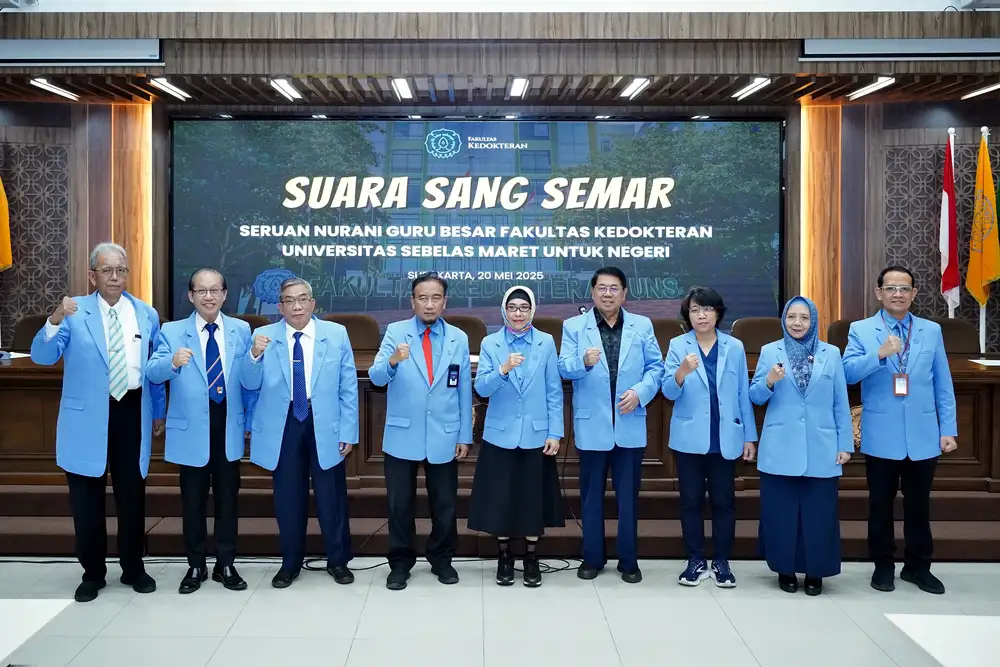
Professors of the Faculty of Medicine (FK) Universitas Sebelas Maret (UNS) Surakarta expressed their rejection of a number of policies of the Minister of Health (Menkes) of the Republic of Indonesia (RI) which were considered to interfere too much in the realm of medical education. One of the main highlights is the involvement of the Minister of Health in the management of medical personnel education, especially in specialist doctor education.
The statement was delivered in a forum entitled "Voice of Sang Semar: Call of Conscience of UNS Medical Faculty Professors" which was held at the UNS Medical Faculty Auditorium on Tuesday (20/5/2025). Present on the occasion were nine UNS Medical Faculty Professors, Prof. Dr. Endang Sutisna Sulaeman, dr., M.Kes.; Prof. Dr. Yusup Subagio Sutanto, dr., Sp.P (K); Prof. Dr. Trisulo Wasyanto, dr., SpJP(K), FIHA, FAPSC, FAsCC; Prof. Ari Natalia Probandari, dr., M.P.H., Ph.D.; Prof. Dr. Reviono, dr., Sp.P(K); Prof. Dr. Sri Sulistyowati, dr.,Sp.O.G(K); Prof. Dr. Bambang Purwanto, dr., Sp.PD-KGH., FINASIM; Prof. Dr. and Prof. Tonang Dwi Ardyanto, dr., Sp.PK(K), Ph.D.
Professor of FK UNS who is also the Dean of FK UNS, Prof. Dr. Reviono, dr., Sp.P(K). stated that this call was not a reaction to a viral case surrounding the world of medical education, but rather a serious criticism of the Minister of Health's policy that disrupts the system that has long been built by the academic world.
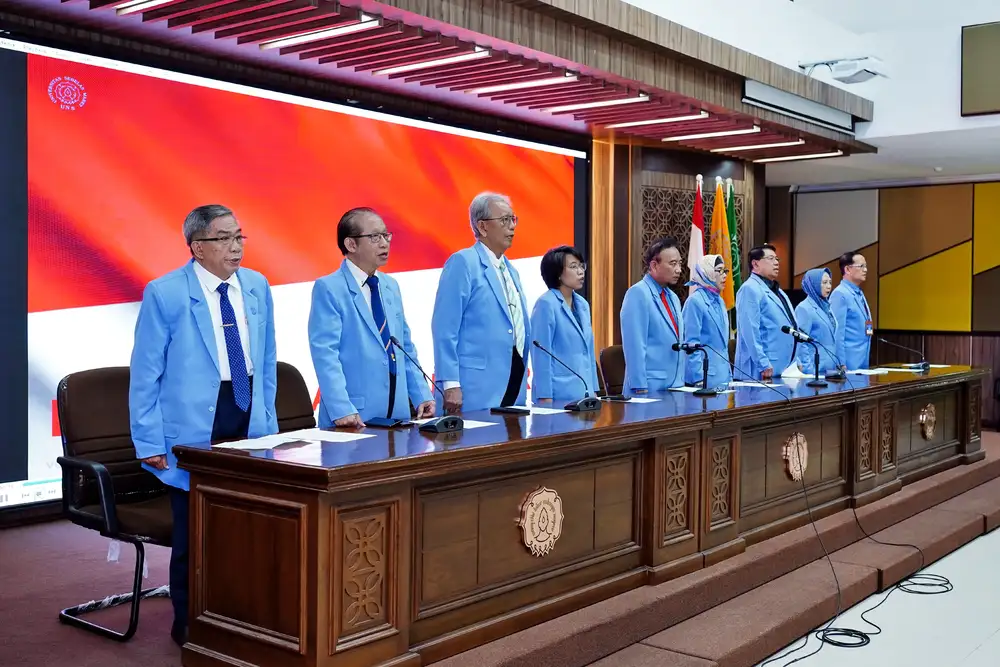 |
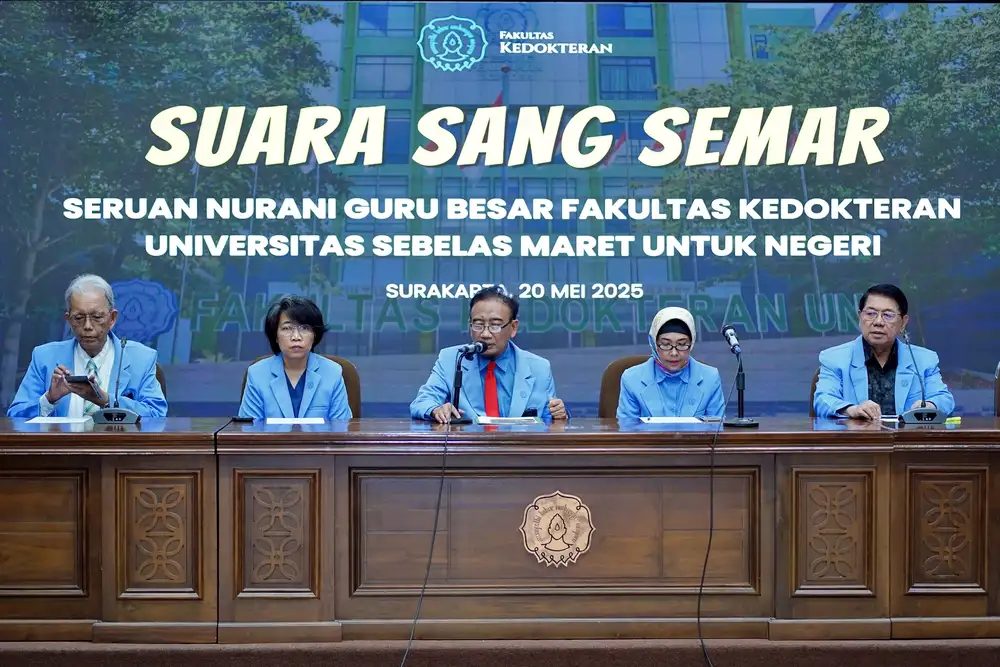 |
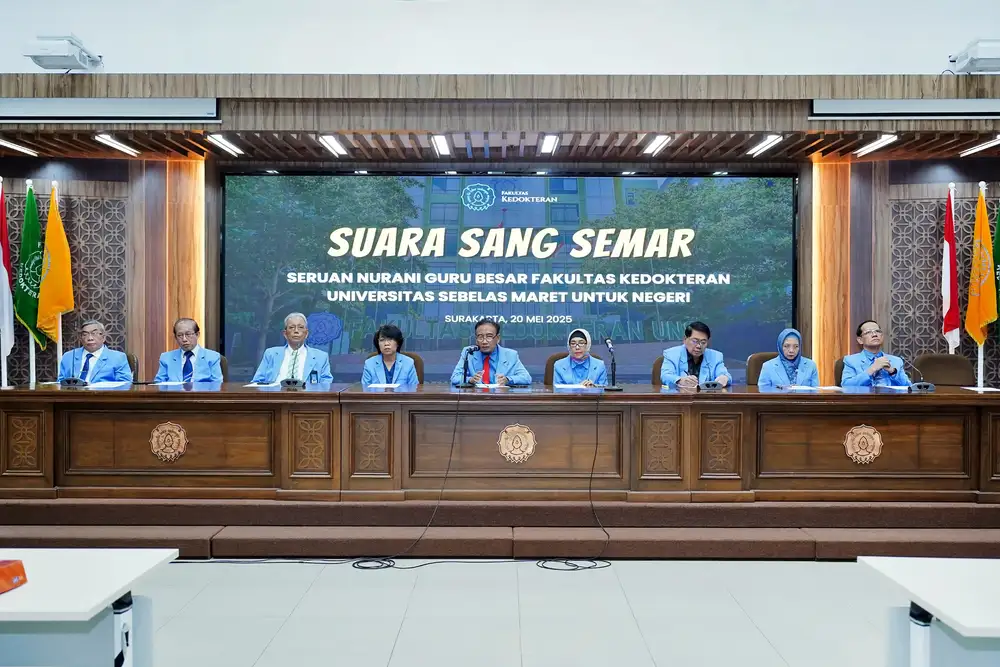 |
(Swipe for the next photos)
"We are very concerned about the Minister of Health's policy that interferes too much in the management of medical education. Even though the provisions have been regulated by the Ministry of Higher Education, Science and Technology, the Minister of Health interferes a lot," Prof. Reviono said.
He highlighted the Minister of Health's discourse on hospital-based specialist doctor education. According to him, currently specialist education is already hospital-based, because 90 percent of the learning process takes place in the Teaching Hospital. However, the selection, curriculum, and supervision of learning are still fully managed by the University.
"Prospective specialist doctors learn while serving, because these two aspects cannot be separated. So far, this system has been running for decades and has been proven to produce quality graduates who are recognized internationally," he added.
The problem arose when the Minister of Health planned to establish a hospital-based Specialist Doctor Education Study Program at the Teaching Hospital that is currently being used by the Faculty of Medicine.
“This is our concern. Why is the new program not opened in other hospitals that are not yet FK teaching hospitals? If in one hospital there are two programs — university-based and hospital-based — we are worried that there will be differences in treatment of students and the emergence of a dualism in the education system,” he added.
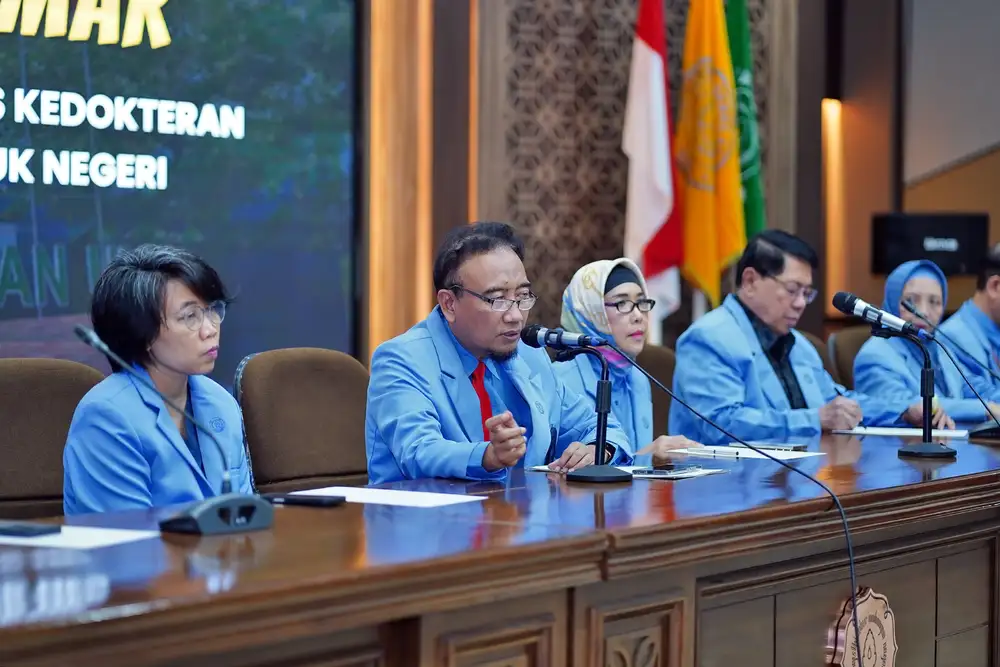 |
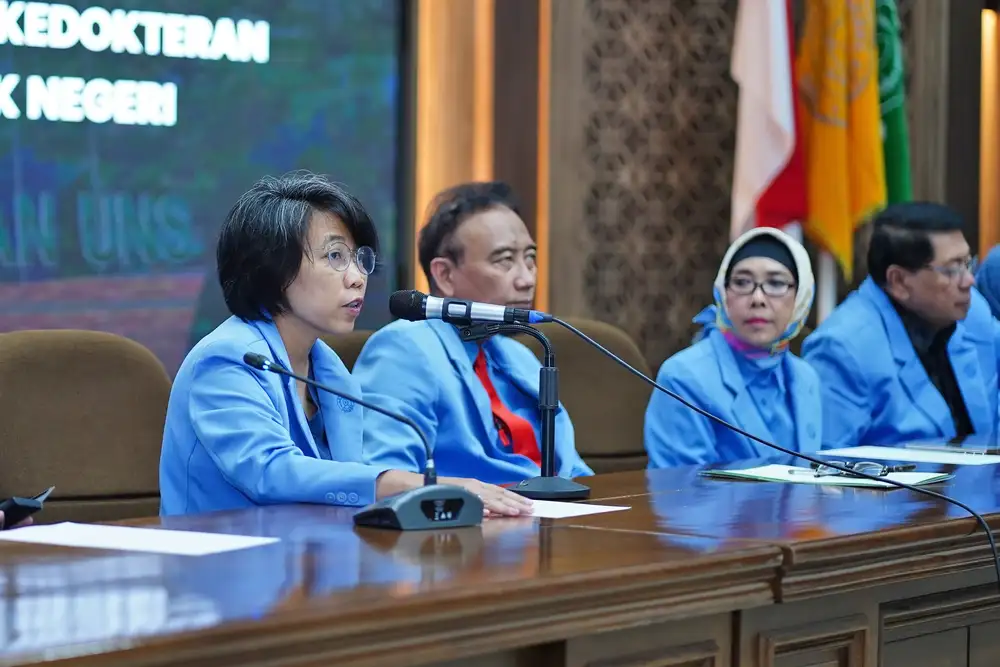 |
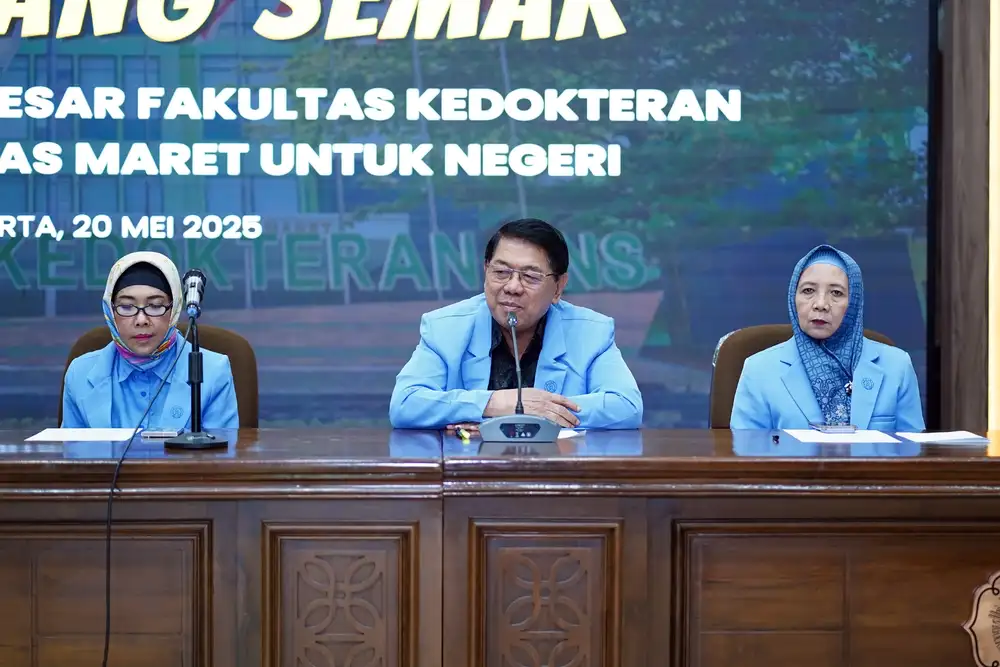 |
(Swipe for the next photos)
In response to the situation, the professors of FK UNS conveyed six appeals as a form of official attitude.
First, FK UNS upholds and is committed to organizing quality medical education so that it can produce graduates of doctors, specialist doctors and sub-specialists and other health workers who are competent and ethical to provide the best service to the community.
Second, quality medical education is very important for the health transformation currently being initiated by the Ministry of Health, in order to expand access to health services to the community. The quality of education needs to be guarded with standard competencies.
Third, quality medical education needs to be organized in the concept of academic health systems, which integrates education and health services as inseparable pillars.
Fourth, hospital-based specialist doctor education does not interfere with existing university-based education. Hospital-based education is not carried out in the main teaching hospital (RSPU) of the existing FK.
Fifth, to realize quality medical education within the framework of academic health systems, there needs to be cooperation/collaboration with a strong partnership spirit characterized by trust, balance in joint decision-making and good communication.
And the sixth point, in response to what has happened recently, FK UNS calls on the ranks of the Ministry of Health to open space for dialogue again with the ranks of the Ministry of Higher Education, Science and Technology, Universities Providing Medical Education, Professional Organizations and other relevant institutions to be able to make a compromise with the principle of consensus based on existing rules/regulations, for the benefit of Indonesian medical education.
"Seeing the latest developments, we hope that all parties can sit together again and find the best solution for the future of medical education in Indonesia. So, we from FK propose point 6 so that a compromise is made with the principle of consensus based on existing rules/regulations, for the benefit of Indonesian medical education," Prof. Reviono concluded.
Public Relation of FK UNS
 bahasa indonesia
bahasa indonesia 



